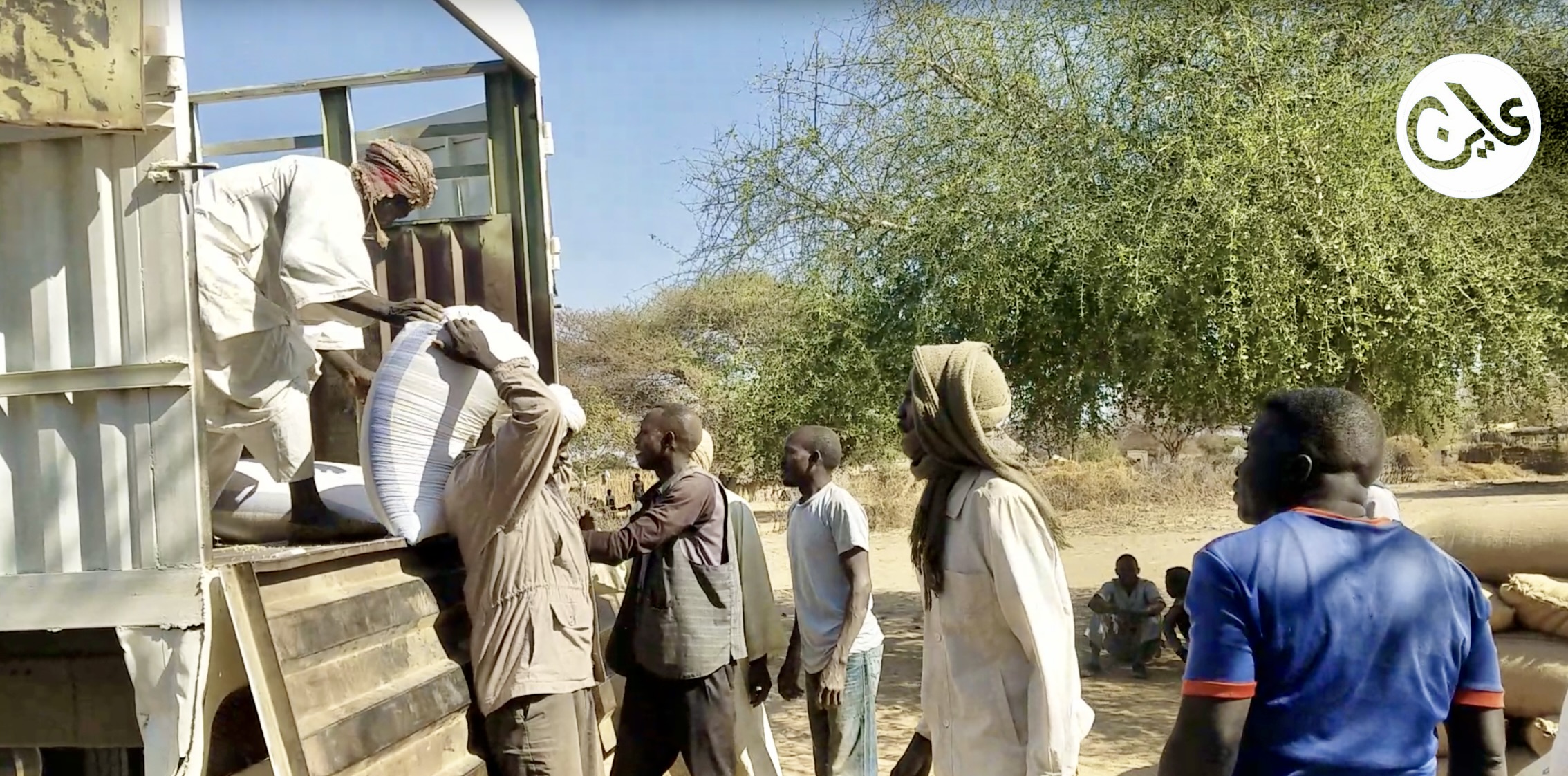RSF: blocking trade, escape to the North, South
12 December 2024
As the harvest season begins amid significant security and economic challenges, the paramilitary Rapid Support Forces (RSF) have banned exports of crops and livestock to Egypt in areas under RSF control. While the directive has not been officially announced through the RSF media channels, RSF commanders and soldiers announced the decision in a video circulated on social media in late October, supported by a leaked RSF document detailing the order.
The directive, which appears to have been implemented immediately, has caused a significant drop in agricultural and livestock prices, inflicting heavy losses on farmers and livestock traders.
More recently, RSF incursions into southern parts of White Nile State have also blocked a vital trade and transit route between Sudan and South Sudan. Since the outbreak of conflict in mid-April last year, the Joda border crossing has represented a major supply line for goods and services from Uganda and South Sudan to Sudan.
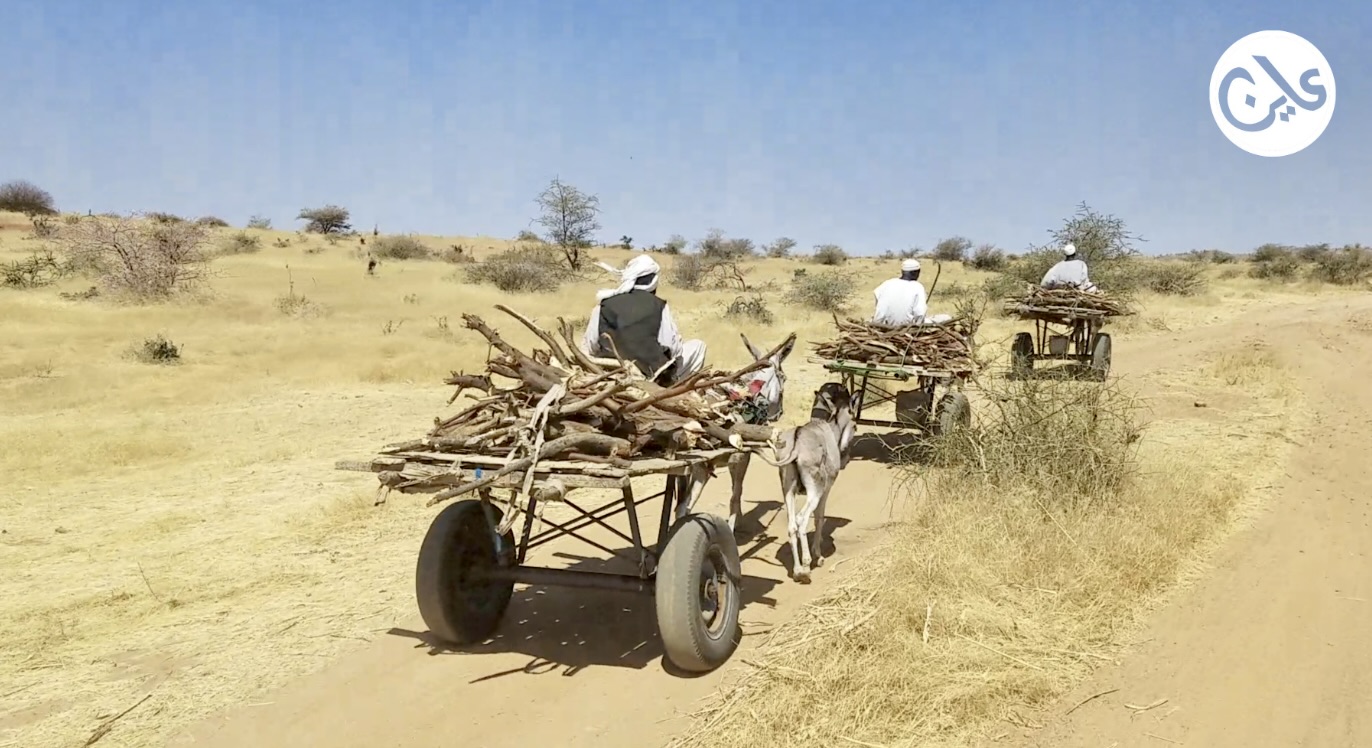
Egypt blocked
The decision by the RSF to ban the export of agricultural and livestock products to Egypt appears to stem from the accusation by the RSF commander Mohamed Hamadan Daglo, widely known as ‘Himmedti’i, against Egypt.
In a speech, Hemdti accused Egypt of siding with the Sudanese Armed Forces (Sudanese Armed Forces) and allegedly launching airstrikes on Rapid Support Force positions in Sennar State. He contributed to the RSF losing control of the strategic Jabal Moya locality to the Egyptian strikes. “Egypt is fighting us,” he said. Accusing it, along with five other countries, of interfering in the ongoing conflict.
Egypt has denied the allegation of its military involvement in the fighting. In an official statement, “These claims arise amidst Egypt’s intensive endeavours to cease the war, protect civilians, and enhance the global response to humanitarian aid initiatives for those affected by the ongoing war in brotherly Sudan.” Egypt urged the international community to thoroughly examine the evidence supporting the allegation made by the RSF commander.
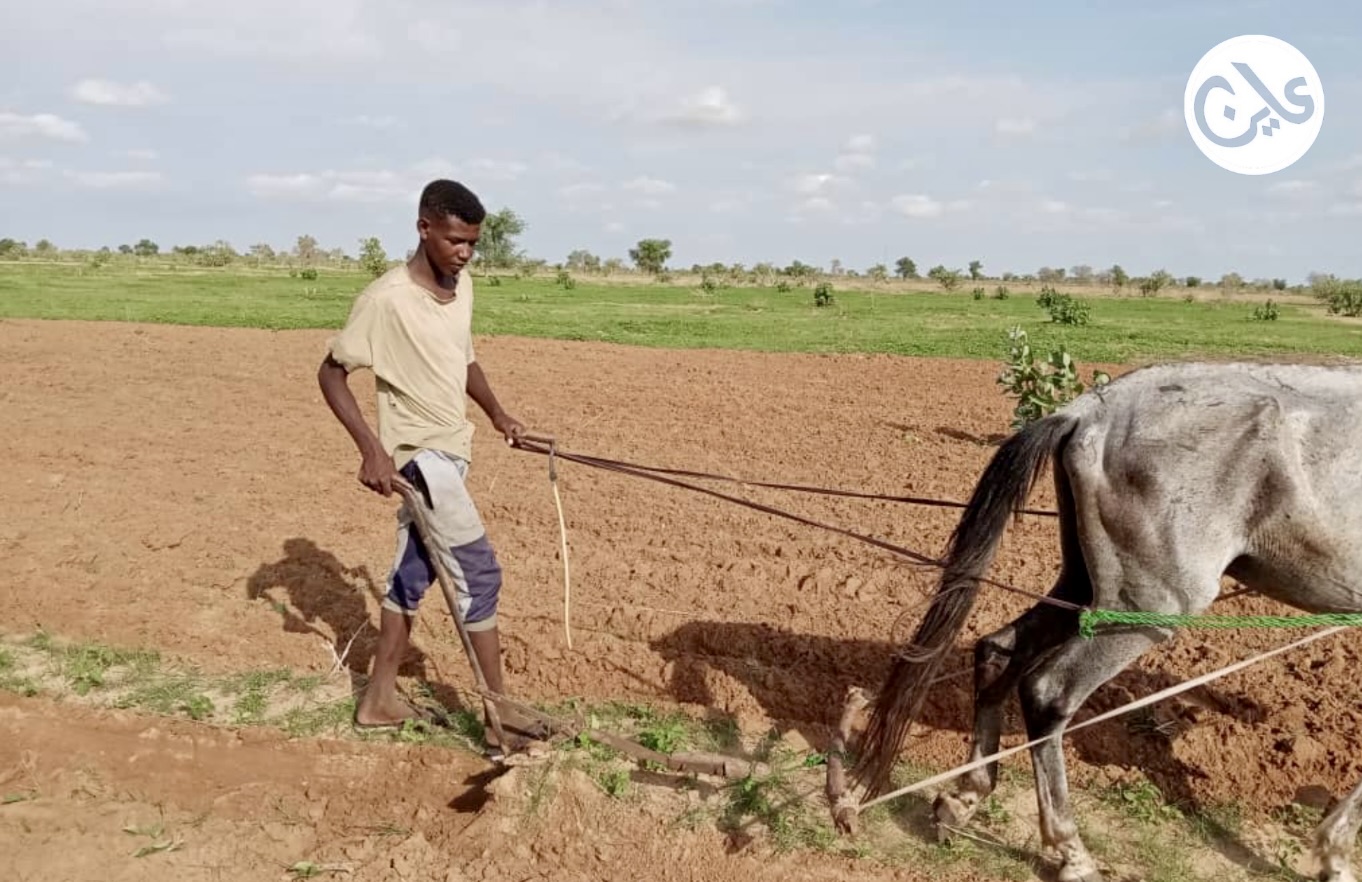
Crop prices
As a result of the ban, market prices for agricultural products and livestock have plummeted significantly, further exacerbating the challenges faced by farmers and livestock traders. The sharp decline in earnings has left many struggling to cover basic costs, pushing them into deeper economic hardship.
In the midst of a brutal war that has scorched agricultural fields, farmer Qasim Al-Sayed Adam in West Kordofan managed to cultivate around seven acres of peanuts, producing a modest yield. However, his hopes were dashed by the plummeting crop prices and market stagnation following the RSF decision. Al-Sayed, who spent his limited savings on planting and harvesting peanuts as he does annually, is now grappling with economic despair. “This season, I had to sell 22 sacks of peanuts just to buy one sack of sorghum,” he told Ayin.
According to local sources, the price of a small measure of sorghum, approximately 250 grams, enough to feed a family of five for just three days, has risen to 8,000 pounds ($3.50). Adding to the burden, milling expenses an additional 7,000 ($3) pounds due to soaring fuel prices affecting food mill operations.
This means a farmer must sell two sacks of peanuts to purchase just one small measure of sorghum, highlighting the significant financial gap.
The price collapse has affected all export crops, including peanuts, hibiscus, gum arabic, sesame, and watermelon seeds—key commodities that are mostly exported and rarely consumed locally in production areas.
The farmer revealed that the combination of skyrocketing prices for essential imported goods and the steep drop in crop values has created a significant disparity between income and expenses, further exacerbating the hardship faced by local farmers.
“This decline is very harmful to us as framers,” said a farmer based outside of Nyala. “Exporting crops used to help increase the prices of exported-targeted goods, providing us with an income that allowed us to purchase essential supplies.”
He explained that due to the ongoing war and the shutdown of most factories, the majority of products available in local markets are imported. “In Darfur we relied on three main routes for the supply of essential products: the Adré-Chad route, the South Sudan route, and the El-Fasher-Libya route, but with the siege by the RSF on El-Fasher, the regional capital, that route is now closed,” he added.
The price drop has affected most production areas across Kordofan State and the Darfur region, except for the market in Nuhud city, West Kordofan State, which offers better prices. However, small-scale farmers often cannot afford the high transportation costs to access these markets, relying instead on local traders to sell their produce. According to Hassan Khalid, a merchant in Nuhud, the high prices have stopped traffic to a once bustling market. “The trucks used to travel from Nuhud to Al-Dabba loaded with crops and return full of goods, including food supplies,” Khalid told Ayin. “After the RSF decision, they now depart empty.”
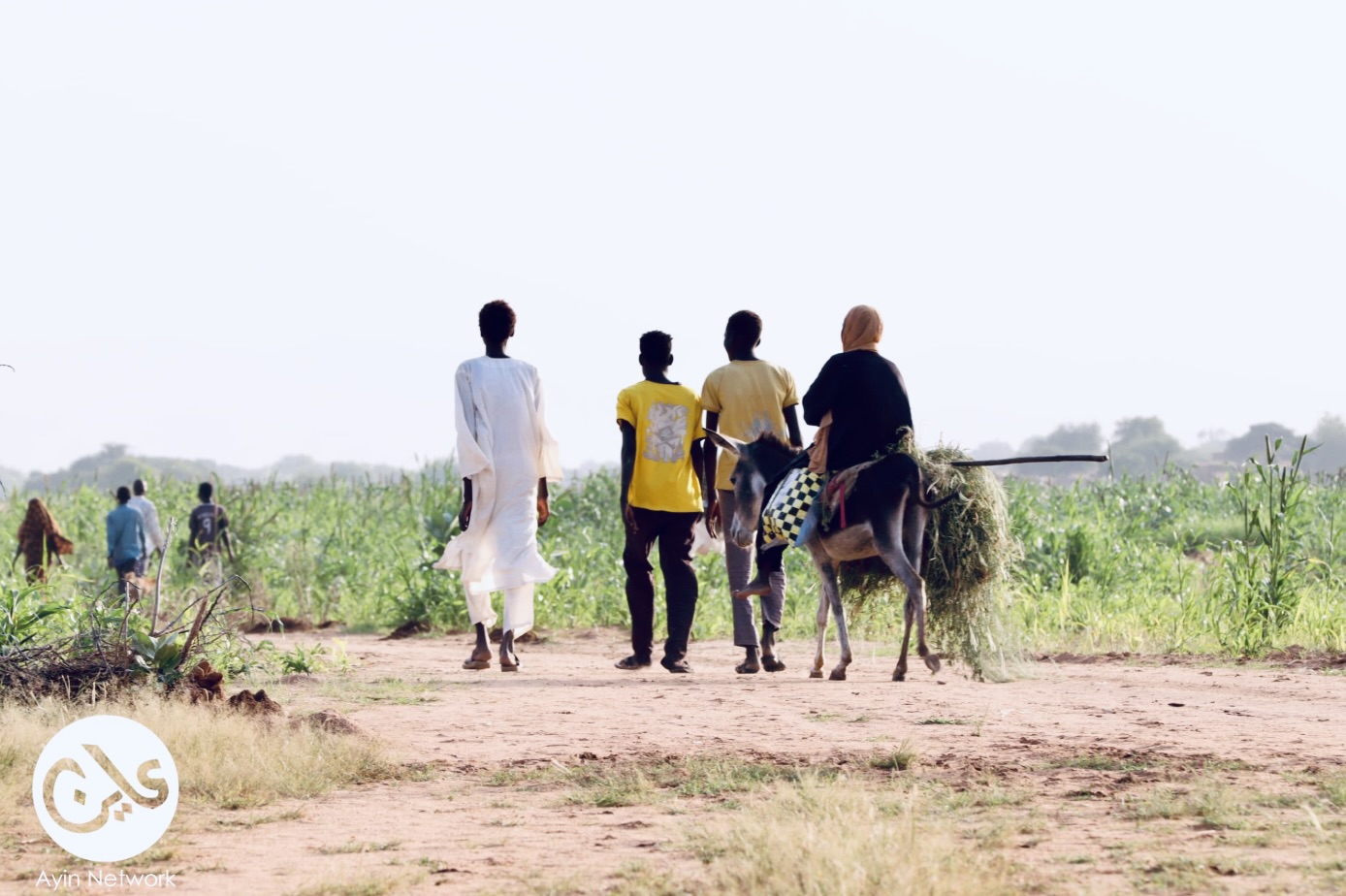 Livestock prices
Livestock prices
Regarding livestock, Al-Arabiya Channel reported a significant drop in meat prices in Darfur, with prices plummeting from 20,000 pounds per kilo to 4,000 pounds.
On social media, some pro-RSF accounts highlighted that prices in their controlled areas had fallen even further, to just 1,000 pounds per kilo, less than half a dollar.
Economist Haitham Fathi indicates that the RSF’s decision harms citizens in the area under its control by drying up their primary sources of income and not Egypt as intended. “It will not significantly impact Egypt, which since 2019 has sought alternatives to Sudanese products, especially meat, now importing from Chad, Somalia, and Central Africa.”
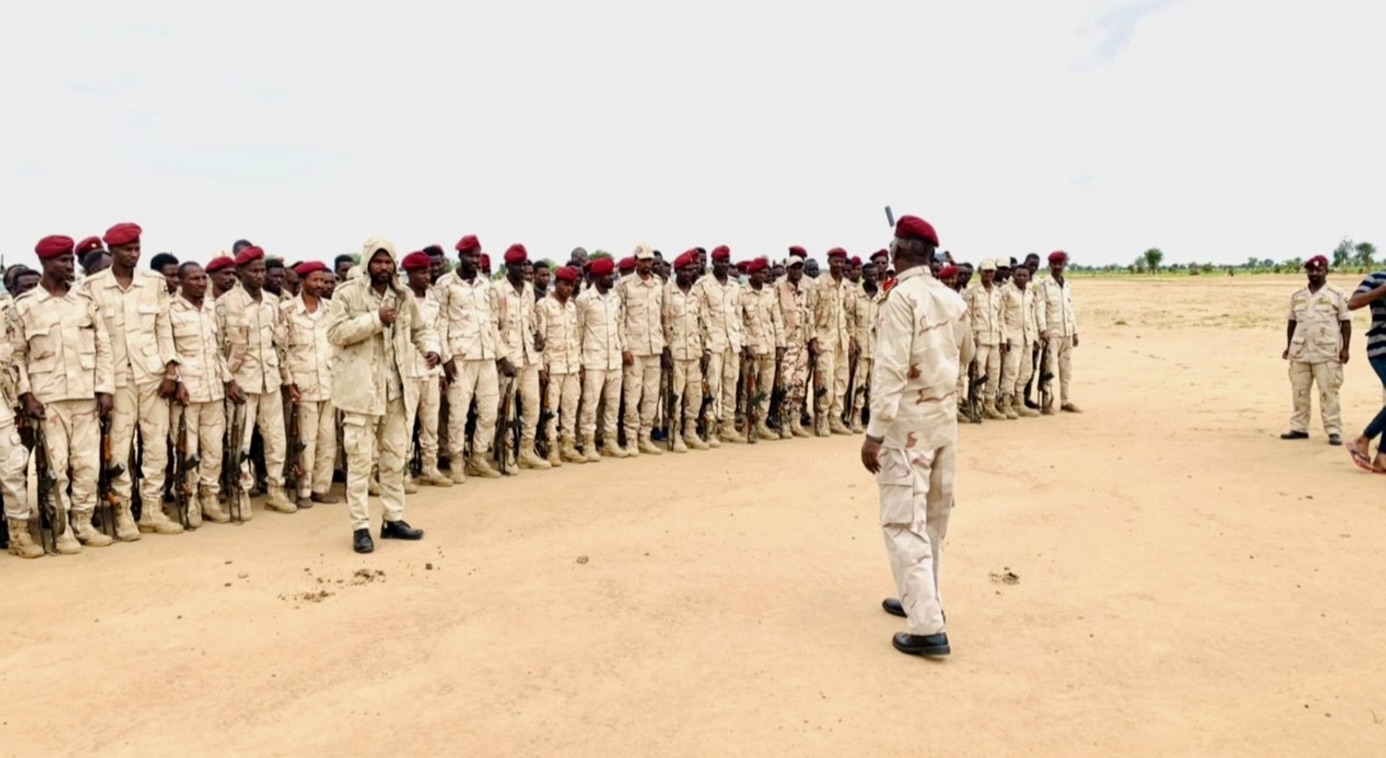
RSF loot: farmers, traders struggle
The decision has opened a new avenue for the RSF soldiers to engage in looting and extortion against traders and truck owners by imposing hefty fines and confiscating agricultural and livestock products, with considerable abuses under the pretext of violating the export ban to Egypt.
“RSF soldiers are looting trucks and cargo shipments, demanding large sums of money to return them,” says Ben Omar Abdallah, a Sudanese exporter. He revealed that the RSF seized a shipment of 2,000 sacks of hibiscus, which was in the area of Um-Al-Nadraya in North Kordofan, en route to Al-Dabba and then to Port Sudan. The product was unloaded, and then soldiers began setting it on fire, but local elders intervened and persuaded them to stop.
“These losses are borne by the traders in Darfur and Kordofan, because as exporters, we agree with them to deliver the crops in Port Sudan to complete the sale, due to security obstacles, Omar said. “The foreign companies, especially the Chinese ones, do not complete the sale or release funds to us unless the goods are shipped on a vessel.”
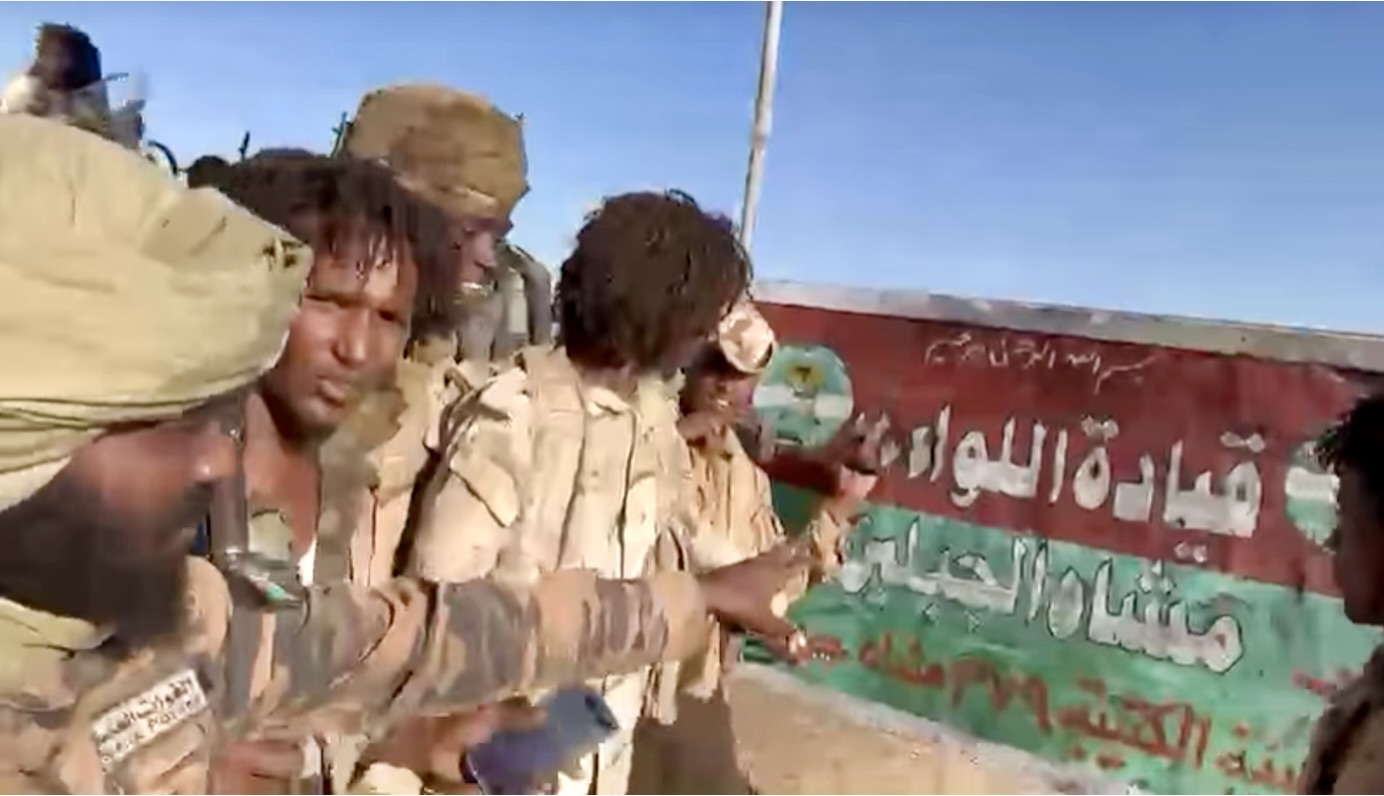
No access via Joda
Meanwhile, access to a vital trade and transit route from Sudan to South Sudan via White Nile State has been blocked due to the fighting. According to a military source, the RSF left Singa in Sennar State after the army uprooted them, forcing the RSF to relocate to While Nile State. From here, the same source said, the RSF have made a new base in Tabun, White Nile State, located between the towns of Jebelain and Joda. Tabun is located on the asphalt road linking the cities of Rabak and Joda, and from there to the city of Renk in South Sudan. The army forces that were in the Joda crossing area withdrew from the Sudanese side into South Sudan, according to military sources.
The Joda crossing was the first choice for citizens of the central states of Sudan and the Kordofan region to cross into South Sudan and Uganda. “The movement of travellers through the Joda crossing has completely stopped for days,” said Aziz Awer, a travel agency owner in Renk. “We were unable to know the reality of the situation because no drivers from the crossing reached us.”


